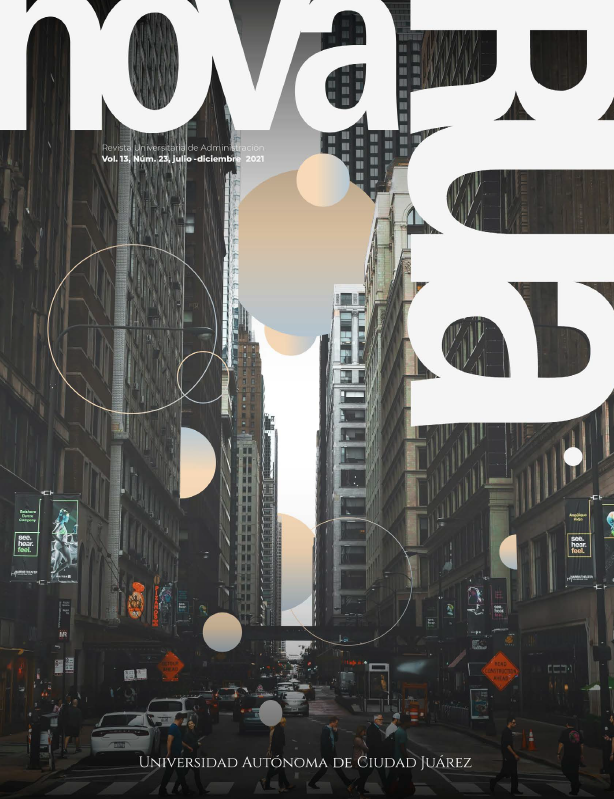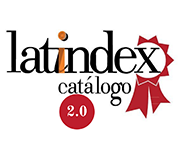The Role of Destination Management Organizations and Tourism Destination Sustainable Competitiveness: The Mexican Case
DOI:
https://doi.org/10.20983/novarua.2021.23.8Keywords:
Sustanable competitiveness, Destination management, Convention and Visitors Bureaus, Sustainable development, Case studyAbstract
Destination management organizations (DMOs) are the key for the achievement of sustainable communities. A DMO is the organization in charge of marketing and management of the destination's resources. In Mexico, the DMO figure do not exist, but there are Convention and Visitors Offices (OCV) and Convention and Visitors Bureaus (BCV), which perform marketing functions in the destination. The objectives of this study are to understand the role of destination management organizations for sustainable competitiveness of the destination and analyze if these organizations perform the functions of a DMO. Six local organizations are analyzed. The case study methodology is conducted to draw a conclusion. However, this article shows that, in most, the DMO´s in México are not being sufficiently effective to achieve sustainability and competiveness and to manage the complexity of the relationship between different stakeholders.
References
Alonso, V. (2010). Factores críticos de éxito y evaluación de la competitividad de los destinos turísticos. Estudios y perspectivas en turismo, 19(2), 201-220. Recuperado de: https://www.redalyc.org/pdf/1807/180713901003.pdf.
Bieger, T., Beritelli, P. y Laesser, C. (2009). Size matters! Increasing DMO effectiveness and extending tourism destination boundaries. Turizam: međunarodni znanstveno-stručni časopis, 57(3), 309-327. Recuperado de: https://hrcak.srce.hr/52968.
Bornshorst, T, Ritchie, J. y Sheehan, L (2010). Determinants of tourism success for DMOs & destinations: An empirical examination of stakeholders’ perspectives. Tourism Management, 31(5), 572-589. DOI: https://doi.org/10.1016/j.tourman.2009.06.008.
Fernandez, A., Herrero, L. y Vidal, J. A. (2017). Los organismos de gestión de destino en enoturismo: casos internacionales de éxito. Pasos Revista de Turismo y Patrimonio Cultural, 15(4), 793-805. DOI: https://doi.org/10.25145/j.pasos.2017.15.054.
Flores, D. (2008). Competitividad sostenible de los espacios turísticos naturales Sierra de Aracena y Picos de Aroche y Sierras de Cazorla, Segura y Las Villas (Tesis Doctoral). Universidad de Huelva. Recuperado de: https://www.eumed.net/tesis-doctorales/2008/dfr/recursos%20intangibles.htm.
Hassan, S. S. (2000). Determinants of Market Competitiveness in an Environmentally Sustainable Tourism Industry. Journal of Travel Research, 38(3), 239-245. DOI: https://doi.org/10.1177/004728750003800305.
Hills, C. y Jones, G. (2009). Administración estratégica (8ª Ed.). McGraw-Hill/ Interamericana editores.
Instituto Mexicano para la Competitividad A. C. (2018). Índice de Competitividad Estatal. Recuperado de: http://imco.org.mx.
Instituto Nacional de Estadística y Geografía (2020). Censo de Población y Vivienda. Recuperado de: https://inegi.org.mx/sistemas/Olap/proyectos/bd/censos/cpv2020/pt.asp.
Jørgensen, M. T. (2017). Developing a holistic framework for analysis of destination management and/or marketing organizations: six Danish destinations. Journal of Travel & Tourism Marketing, 34(5), 624-635. DOI: https://doi.org/10.1080/10548408.2016.1209152.
Klimek, K. (2013). Destination management organizations and their shift to sustainable tourism development. European Journal of Tourism, Hospitality and Recreation, 4(2), 27-47.
Mazaro, R. M. y Varzin, G. (2008). Modelos de competitividad para destinos turísticos en el marco de la sostenibilidad. Revista de Administração Contemporanea, 12 (3), 789-809. DOI: https://doi.org/10.1590/S1415-65552008000300009.
Ministry of Tourism of Canada (2007). Premier Ranked Tourist Destination. Recuperado de: http://www.mtc.gov.on.ca/en/publications/publications.shtml.
Minguzzi, A. (2006). Destination competitiveness and the role of destination management organization (DMO): an Italian experience. En Tourism local systems and networking. Routledge. Recuperado de: http://perpus.univpancasila.ac.id/repository/EBUPT180171.pdf#page=202.
Morrison, A. M., Bruen, S. M. y Anderson, D. J. (1997). Convention and visitor bureaus in the USA: A profile of bureaus, bureau executives, and budgets. Journal of Travel and Tourism Marketing, 7(1), 1-19. DOI: https://doi.org/10.1300/J073v07n01_01.
Pechlaner, H. y Fuchs, M. (2002). Towards new skill requirements for destination organizations: An exploratory study. Tourism Analysis 7(1), 43-53. DOI: https://doi.org/10.3727/108354202108749943.
Pechlaner, H., Volgger, M y Herntrei, M. (2012). Destination management organizations as interface between destination governance and corporate governance. Anatolia, 23(2), 151-168. DOI: https://doi.org/10.1080/13032917.2011.652137.
Presenza, A., Sheehan, L. y Ritchie, J. B. (2005). Towards a model of the roles and activities of destination management organizations. Journal of Hospitality, Tourism and Leisure Science, 3(1), 1-16. Recuperado de: https://d1wqtxts1xzle7.cloudfront.net/50282840/53fc6e0c0cf2364ccc049a1a-with-cover-page-v2.pdf?Expires=1637729837&Signature=L3x~6Lf3lUcR-9hcSNrKpR53SCn1emtRcCJI9O037e0PNeDgMMo5XQ5QkH8hNYqkchYvnLjLyrNBA-h0oybSzg-qEYcxsfZDuOpPb4hoqM47Ecegs8yPFPewO9I~JIHBD8LubETZt7W49m9-RjO5efElEg7YbZPwlxa-2RWza1SMeg94DjJN8iCkWU-pFhmcZiFdjeKN4CpAdR7mtSwOFvSnucHH00xPsYCj5TMV8m~VPlRdAI1R59DyW8nNz54IpaYrvs2I7~-xOkTvLPAbsYuHp90Mb~SSpxqpX48oNDjBBqCn9xO8VN~7rs5~9DgCFATbM2DM-ZN2dRl~qAo8dw__&Key-Pair-Id=APKAJLOHF5GGSLRBV4ZA.
Pike, S. y Page, S. J. (2014). Destination Marketing Organizations and destination marketing: A narrative analysis of the literature. Tourism management, 41, 202-227. DOI: https://doi.org/10.1016/j.tourman.2013.09.009.
Pulido-Fernández, M. D. (2014). Metodología para la implantación de la gobernanza como herramienta de gestión de destinos turísticos (Tesis doctoral). Universidad de Jaén. Recuperado de: http://dspace.ujaen.es/handle/10953/642.
Ritchie, J. R. y Crouch, G. I. (2003) Competitive destination: A sustainable tourism perspective. CABI Publishing.
Sancho, A. (2005). Impacts of Sustainable Tourism on Local Populations. Anuario Turismo y Sociedad, (4), 7-38. Recuperado de: https://papers.ssrn.com/sol3/papers.cfm?abstract_id=1512600.
Secretaria de Turismo (2006). Organización y actividades de Mercadeo de Destinos Turísticos. Recuperado de: https://cedocvirtual.sectur.gob.mx/janium/Documentos/004891Pri0000.pdf.
Secretaria de Turismo (2019a). Compendio estadístico 2019 DATATUR. Recuperado de: https://www.datatur.sectur.gob.mx/SitePages/CompendioEstadistico.aspx.
Secretaria de Turismo (2019b). Reporte del monitoreo hotelero, setenta centros seleccionados. Recuperado de: https://www.datatur.sectur.gob.mx/Documentos%20Publicaciones/2020-05_rpt_ocupacion.pdf.
Sheehan, L., Vargas‐Sánchez, A., Presenza, A. y Abbate, T. (2016). The use of intelligence in tourism destination management: An emerging role for DMOs. International Journal of Tourism Research, 18(6), 549-557. DOI: https://doi.org/10.1002/jtr.2072.
Toledo, G. L., Valdés, J. Á. y Polero, Á. C. (2003). Empresas turísticas em ambiente globalizado: marketing e competitividade. Estudo de casos de clusters turísticos. Revista Eletrônica de Administração, 9(3). Recuperado de: https://www.seer.ufrgs.br/read/article/view/42679.
Volger, M. y Pechlander H. (2014). Requirements for destination management organizations in destination governance: understanding DMO success. Tourism Management, 41, 64-75. DOI: https://doi.org/10.1016/j.tourman.2013.09.001.
World Economic Forum (2019). The Travel & Tourism Competitiveness Report 2019. Recuperado de: http://www3.weforum.org/docs/WEF_TTCR_2019.pdf.
Yacuzzi, E. (2005). El estudio de caso como metodología de investigación: teoría, mecanismos causales, validación. Universidad del Centro de Estudios Macroeconómicos de Argentina. Recuperado de: https://www.econstor.eu/handle/10419/84390.
Yunis, E. (2003). El marco internacional de la gestión sostenible del turismo: La visión de la Organización Mundial del Turismo. A Distancia, (1), 16-21. Recuperado de: https://dialnet.unirioja.es/servlet/articulo?codigo=1129612.
Downloads
Published
Issue
Section
License
Copyright (c) 2021 Ana María Valero Quezada

This work is licensed under a Creative Commons Attribution-NonCommercial-ShareAlike 4.0 International License.
All contents of the electronic edition of the journal are distributed under a license and distribution "Creative Commons Attribution-Noncommercial-ShareAlike 4.0 International" (CC-BY-NC-SA). You can see from here the informative version of the license.
Those authors/publications as having this journal agree to the following terms:
a) Is allowed and recommends authors / as disseminate their work via the Internet (p. eg .: institutional telematic files or on their website), which can produce interesting exchanges and increase appointments of the published work. (See The Effect of Open Access).












